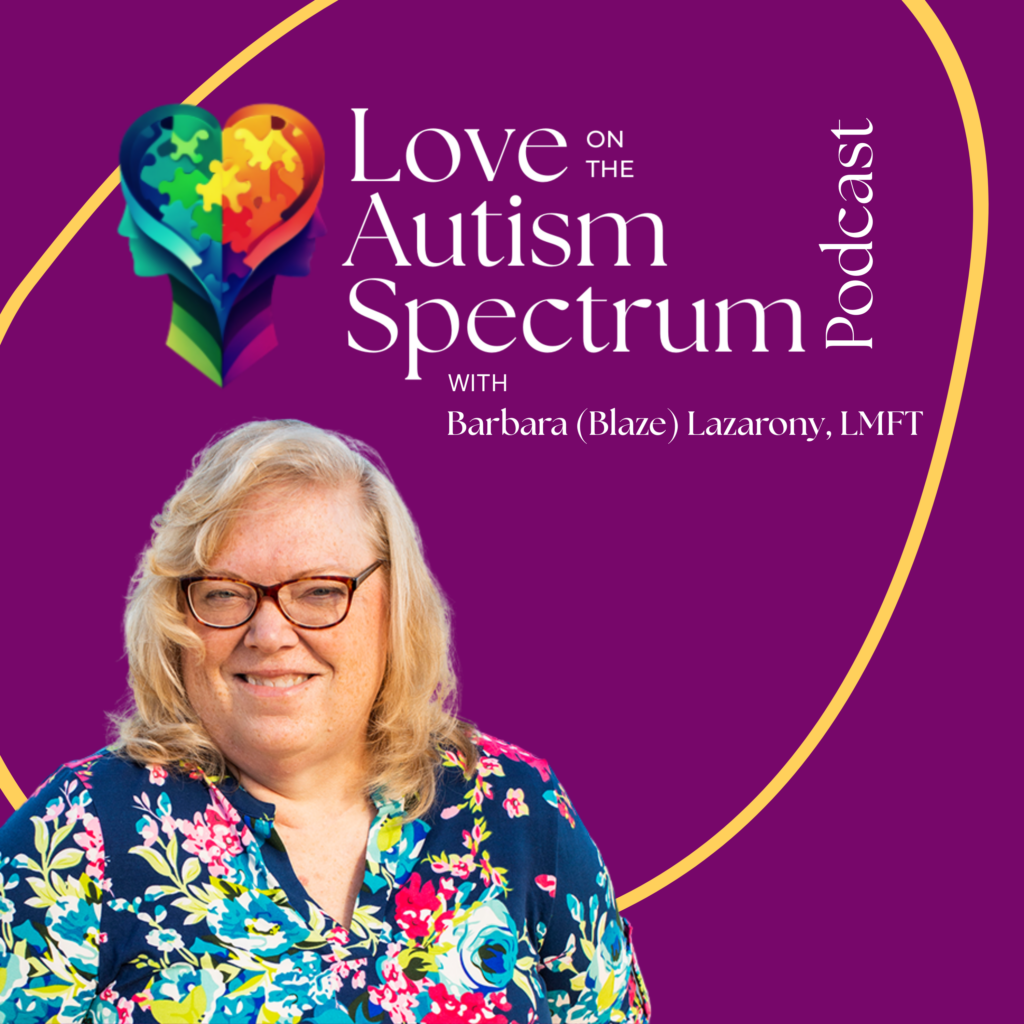Did you know that approximately 30% of the population has a neurodivergent condition, such as Autism Spectrum Disorder (ASD), Attention Deficit Hyperactivity Disorder (ADHD), a learning disability, or an intellectual disability?
Neurodivergence is the natural variation in human brain function and behavior, highlighting that differences, including brain differences, should be viewed as unique strengths and challenges rather than deficits.
Join us in this blog post, as we explore the concept of neurodiversity, its impact on mental health and education, and its benefits in the workplace.
Key Takeaways
- Neurodivergence is the recognition of neurological differences as a variety of strengths and challenges rather than deficits.
- The neurodiversity social movement seeks to challenge societal perceptions, recognize that a cure is unnecessary, and promote empowerment for neurodivergent individuals.
- Self-advocacy and building self-awareness are essential to access resources, advocate for needs & find success in various aspects of life.
Exploring the Concept of Neurodiversity
Neurodivergence is a term that describes individuals who possess a neurological difference, such as the following:
Typically Genetic Forms of Neurodivergence:
- Autism
- Attention Deficit Hyperactivity Disorder (ADHD)
- Obsessive Compulsive Disorder (OCD)
- Dyslexia, Dyspraxia, or Dyscalculia
Acquired Forms of Neurodivergence:
- Complex Trauma
- Traumatic Brain Injury
The concept of neurodiversity emphasizes that these variations in the human brain are regular occurrences and, in some cases, can result in meaningful and advantageous insights and capabilities. For instance, neurodivergence can bestow the autistic community with distinct strengths and challenges. Neurodivergent individuals may experience difficulty with soft skills such as emotional intelligence, social interactions, or working effectively in a group. Nonetheless, various aspects of life can be excelled at with appropriate support and understanding.
Professionals who identify as neurodivergent themselves often share their experiences to create inclusive educational environments and supportive practices for neurodivergent children, promoting understanding and acceptance.
Individuals not impacted by any form of divergence that alters brain function, thereby not affecting their abilities and challenges, are termed “neurotypical.” The paradigm of neurodiversity underscores the acknowledgment of neurological differences as unique strengths and challenges rather than deficits.
What is Neurodivergence?
Neurodivergence refers to the diversity of human brains and minds, encompassing a range of neurological and psychological differences, including autism, ADHD, and learning disabilities. Neurodivergent individuals think, learn, and experience the world in ways that differ from the majority of the population. The concept of neurodivergence is rooted in the idea that neurological differences are a natural part of human diversity, rather than deficits or disorders.
Neurodivergence is not just a medical or psychological concept, but also a social and cultural one, with implications for how we understand and interact with individuals who are neurodivergent. The autistic community is a key part of the neurodiversity movement, advocating for acceptance, inclusion, and understanding of autistic individuals. By recognizing and valuing these differences, we can create a more inclusive and supportive society for all.
The Birth of the Term
Judy Singer, a sociologist on the autism spectrum, originated the term “neurodiversity” in 1997. It has since seen recognition and discussion in various publications, including the Diagnostic and Statistical Manual of Mental Disorders (DSM). Neurodiversity’s growing popularity is due to an escalation in the diagnosis of individuals with developmental disorders in the early 2000s and the evolving definitions of autism spectrum, ADHD, and learning disabilities.
Australian sociologist Judy Singer first used the term neurodivergence in 1998. It has subsequently broadened into a concept and social movement campaigning for accepting and including individuals with neurodivergence. The neurodiversity movement aims to challenge traditional views of neurological differences and promote understanding, acceptance, and support for those with diverse brain functions.
Neurodiversity as a Social Movement
The social movement of neurodiversity aims to:
- Redefine societal perceptions of autism and related conditions, moving away from the notion of “disease control.”
- Acknowledge that neurodiversity doesn’t require a cure.
- Change the prevailing terminology from “condition, disease, disorder, or illness.”
- Give neurodivergent individuals greater control over their treatment
The neurodiversity movement’s symbol combines the black power fist and infinity symbol, representing the strength and limitless potential of neurodivergent individuals.
The social disability model suggests that disabilities result partly from societal barriers, not just from inherent shortcomings. This viewpoint aligns with the neurodiversity movement’s objectives, highlighting the significance of societal understanding and support to help neurodivergent individuals excel and realize their maximum potential.
Recognizing Neurodivergent Conditions
Neurodivergent conditions such as Autism Spectrum Disorder, ADHD, and several learning disabilities are common, each presenting unique traits and challenges. Recognizing and understanding these conditions is crucial to assisting neurodivergent individuals across different facets of life, including education, mental health, and the workplace.
Autism Spectrum Disorder
Autism Spectrum Disorder, a lifelong condition, affects communication, social interaction, and information processing for an autistic person. Indications of ASD may encompass issues with communication, social interaction, and repetitive behaviors. For those with ASD, medical diagnosis typically involves a combination of medical history, physical examination, and psychological evaluation.
Behavioral therapy, medication, and other interventions can serve as treatments for Autism Spectrum Disorder. Recognizing that each autistic individual is unique and may need different supports and accommodations to excel in diverse environments, such as education and the workplace, is crucial.
Attention Deficit Hyperactivity Disorder (ADHD)
Characterized by attention, impulsivity, and hyperactivity difficulties, Attention Deficit Hyperactivity Disorder (ADHD) affects both children and adults. ADHD is typically diagnosed at an early age, but its effects can continue into adulthood for some individuals.
Individuals with ADHD have access to a multitude of resources and support, including therapy, medication, and lifestyle modifications. Understanding and addressing the unique challenges of those with ADHD can foster more inclusive environments in education, the workplace, and throughout society.
Obsessive Compulsive Disorder (OCD)
Obsessive Compulsive Disorder (OCD) is a mental health condition characterized by recurring, unwanted thoughts and behaviors that can have a severe impact on an individual’s daily life. These obsessions and compulsions can be time-consuming and distressing for those with OCD.
Treatment for OCD often includes therapy, medication, and support from loved ones. Creating an understanding and accepting environment for those with OCD is crucial in promoting overall well-being and reducing the stigma surrounding the disorder.
Learning Disorders characterized by intrusive abilities
Specific areas of learning and cognitive function are affected by learning disabilities, such as:
- Dyslexia, which affects an individual’s reading and writing capabilities
- Dyspraxia, which impacts movement and coordination
- Dyscalculia, which impairs a person’s capacity to comprehend numbers, is another type of learning challenge.
Recognizing and understanding these learning disabilities enables us to better support neurodivergent individuals in educational settings and the workplace. By adhering to the Disabilities Education Act, targeted accommodations like visual aids, extra time for assignments, or alternative assessment methods can aid those with learning disabilities in achieving their maximum potential. Additionally, implementing effective learning disability practice is crucial for developing strategies that enhance support and well-being for individuals with these conditions.
Complex Trauma and Complex PTSD
Complex trauma refers to repeated and prolonged exposure to traumatic events, such as abuse or neglect, during childhood. This can have a lasting impact on an individual’s mental health and overall well-being, often leading to difficulties in regulating emotions and relationships.
Society needs to recognize the effects of complex PTSD and provide support and resources for those who have experienced it. Therapy, support groups, and self-care practices can help individuals cope with the long-term impacts of complex trauma.
Traumatic Brain Injury
Traumatic brain injury (TBI) occurs when there is a sudden and violent impact to the head, causing damage to the brain. This can often result in cognitive and physical impairments that affect an individual’s daily functioning.
Individuals with TBI need to receive proper medical treatment and rehabilitation services to manage their symptoms and improve their overall quality of life. Support from loved ones and accommodations at work or school may also be necessary for those with TBI.
Challenges Faced by Neurodivergent People
Neurodivergent people face a range of challenges in their daily lives, including social interactions, classroom structure, and workplace environments. Neurodivergent thinking and behavior often go against what society expects or deems as “good.” Interpersonal interactions can be daunting for neurodivergent people, leading to feelings of isolation or loneliness.
Many neurodivergent people experience sensory sensitivities, which can make it difficult to participate in crowded or loud environments. They may also struggle with social interactions, such as initiating or maintaining conversations, understanding social cues, and developing and maintaining relationships.
In the workplace, neurodivergent individuals may encounter challenges with communication, time management, and organization. Understanding unwritten social rules and expectations can be particularly difficult, leading to feelings of frustration and anxiety. By acknowledging these challenges and providing appropriate support, we can help neurodivergent individuals navigate their environments more effectively.
Building Resilience and Adaptability
Building resilience and adaptability is essential for neurodivergent individuals to overcome obstacles and thrive in a neurotypical-dominated world. This can involve developing coping strategies, such as self-care, mindfulness, and stress management.
Neurodivergent individuals can also benefit from seeking support from neurodivergent friends, family, and mental health professionals. Building a support network can provide a sense of belonging and connection, which is essential for building resilience.
In addition, neurodivergent individuals can benefit from learning about their brain development, communication style, and learning preferences. This self-awareness can help them develop strategies to overcome challenges and capitalize on their strengths. By understanding their unique needs and seeking appropriate support, neurodivergent individuals can build resilience and adaptability in various aspects of life.
Embracing Identity and Self-Acceptance
Embracing one’s neurodivergent identity and self-acceptance is crucial for building resilience and adaptability. This involves recognizing and valuing one’s unique strengths, abilities, and perspectives.
Neurodivergent individuals can benefit from learning about the autistic community, autistic people, and autism spectrum disorder. This can help them develop a sense of pride and identity, which is essential for building self-acceptance.
In addition, neurodivergent individuals can benefit from learning about neurodiversity affirming language, which can help them feel more comfortable and confident in their identity. This can involve using language that is respectful and inclusive, such as using the term “autistic person” instead of “person with autism.”
Overall, embracing one’s neurodivergent identity and self-acceptance is essential for building resilience and adaptability. By recognizing and valuing one’s unique strengths, abilities, and perspectives, neurodivergent individuals can thrive in a neurotypical-dominated world.
Neurodivergence and Mental Health
Neurodivergence and Mental Health
Due to societal expectations and lack of support, neurodivergent individuals may face heightened instances of anxiety and depression.
Hence, addressing the unique mental health challenges of neurodivergent individuals is critical, along with understanding their neurological differences.
Anxiety and Depression
The unique experiences and struggles of neurodivergent individuals can intensify mental health challenges like anxiety and depression, which are common mental health conditions. Anxiety is a normal emotion that the brain utilizes to respond to stress and alert one of potential danger. Still, it can also manifest as a symptom of various anxiety disorders. Depression, on the other hand, is a mental health disorder characterized by persistent feelings of sadness and low moods.
For the well-being of neurodivergent individuals, access to mental health resources and support is essential. It aids them in managing their unique challenges and voicing their needs. This includes:
- Therapy
- Medication
- Lifestyle modifications
- Support groups
These resources can effectively address anxiety and depression in neurodivergent individuals.
Mental Health Resources and Support
Neurodiversity is a natural and valuable form of human diversity. –National Symposium on Neurodiversity
Assisting neurodivergent individuals in managing their distinct difficulties, access to mental health resources, and support is indispensable for their welfare. Mental health resources and support may include:
- Therapy
- Medication
- Support groups
- Other forms of assistance
Neurodivergent individuals can obtain mental health resources and support through their healthcare provider, online resources, or local support groups. Identifying the most suitable mental health resources and support requires considering the individual’s needs, budget, and preferences and researching the credentials of any provider before utilizing their services.
Embracing Neurodiversity in Education
Supporting neurodivergent students and fostering their success necessitates inclusive education practices. Acknowledging and celebrating the range of neurological differences among students allows us to create learning environments that accommodate their distinct learning styles and capabilities.
Inclusive Teaching Strategies
Differentiated instruction and universal learning design are inclusive teaching strategies that accommodate diverse learning needs and foster student success. These strategies support student engagement and foster learning environments where all students can thrive.
Inclusive teaching strategies include:
- Offering students voice and choice
- Using collaborative learning
- Implementing ‘warm demanding’
- Harnessing the power of diversity
Implementing these strategies in education contributes to a more equitable learning environment where all students, including those with neurodivergent conditions, feel safe, respected, and valued.
Supporting Neurodivergent Students
Targeted support and accommodations can bolster academic and social success for neurodivergent students. Implementing flexible learning options, utilizing visual aids, and promoting peer-to-peer support are strategies that can foster an inclusive learning atmosphere for neurodivergent students.
Online support groups, advocacy organizations, and mental health professionals are resources available for further support and advocacy for neurodivergent students. Providing necessary support and accommodations ensures equal access to education and opportunities for success for neurodivergent students.
Neurodiversity in the Workplace
Increased creativity, problem-solving, and employee loyalty are among the numerous benefits a neurodiverse workforce offers. Embracing neurodiversity in the workplace can foster a more inclusive environment that values and supports neurodivergent individuals‘ unique strengths and challenges.
Advantages of a Neurodiverse Workforce
Welcoming neurodiversity in the workplace can result in innovative solutions, diverse perspectives, and a more inclusive work setting. The range of perspectives and capabilities a neurodiverse workforce brings to the workplace can result in more innovative solutions and improved problem-solving.
Furthermore, a neurodiverse workforce can contribute to a more inclusive work atmosphere, boosting employee productivity, morale, and communication. By valuing and supporting neurodivergent employees, employers can foster a workplace culture that encourages diversity, equity, and inclusion.
Creating an Inclusive Work Environment
Providing reasonable accommodations, fostering open communication, and promoting awareness and understanding of neurodiversity are ways employers can create an inclusive work environment. Promoting open communication in the workplace can involve establishing a safe environment for employees to express opinions and ideas, encouraging employees to ask questions, and providing constructive feedback.
Employers can foster neurodiversity awareness and understanding by:
- Providing training and resources on neurodivergent conditions
- Cultivating a culture of acceptance and respect
- Encouraging employees to share their experiences
Implementing these strategies can help employers ensure neurodivergent employees feel valued, respected, and included in the workplace.
Everybody is a genius, but if you judge a fish by its ability to climb a tree, it will live its whole life believing it is stupid. –Unknown
Self-Advocacy and Empowerment for Neurodivergent Individuals
For neurodivergent individuals to navigate their unique challenges and excel in different aspects of life, self-advocacy and empowerment are essential. By building self-awareness and developing a solid support system, neurodivergent individuals can:
- Advocate for their needs
- Seek accommodations and support in education and the workplace
- Access resources and services that can help them thrive
- Educate others about neurodiversity and promote acceptance and inclusion
With self-advocacy and empowerment, neurodivergent individuals can succeed in education, the workplace, and beyond.
Building Self-Awareness
For neurodivergent individuals, the first step towards self-advocacy and empowerment is to build self-awareness and understand one’s strengths and challenges. By recognizing their aptitudes and difficulties, neurodivergent individuals can create plans for self-advocacy and strengthening.
Support groups, online communities, and mental health professionals are among the resources and support available for neurodivergent individuals to build self-awareness. Through education, understanding their rights, and creating a support system, neurodivergent individuals can become empowered advocates for their well-being and success.
Developing a Support System
A robust support system comprising friends, family, and professionals can assist neurodivergent individuals in navigating their unique challenges and advocating for their needs. Building a support system might involve forging connections with relatives and friends, seeking professional consultation, and joining support groups.
A robust support system can offer emotional and practical aid, engendering a sense of safety, respect, and esteem for neurodivergent individuals. Fostering supportive relationships allows neurodivergent individuals to effectively navigate their challenges in education, the workplace, and society.
Summary
In conclusion, understanding and embracing neurodiversity is essential for fostering inclusive environments in education, the workplace, and society. By recognizing the unique strengths and challenges of neurodivergent individuals, we can provide targeted support and accommodations to help them thrive. With increased awareness, understanding, and advocacy, we can work together to create a world that celebrates and values the diverse capabilities and perspectives of all individuals, neurodivergent and neurotypical alike.
Frequently Asked Questions
What is considered neurodivergence?
Neurodivergence is an umbrella term for individuals with unusual differences that affect their thinking, behavior, and interaction. These variations include medical disorders, learning disabilities, and other neurological or developmental conditions, such as autism spectrum disorder (ASD) or attention-deficit/hyperactivity disorder (ADHD).
What is the most common neurodivergence?
The most common neurodivergence is dyslexia, which affects approximately 10% of adults. Attention Deficit Hyperactivity Disorder (ADHD) and Autism Spectrum Disorder (ASD) are also prevalent, with 4-5% and 1-2% of the population respectively having these conditions. The National Institute of Mental Health (NIMH) estimates that 1.2% of adults have OCD.
How can I tell if I’m neurodivergent?
If you are experiencing challenges with concentration, motor functions, or communication, you are likely neurodivergent. Neurodivergent conditions such as ADHD, autism spectrum disorders, and dyslexia could be the cause of these symptoms.
Is ADHD considered neurodiverse?
ADHD is a type of neurodiversity which includes conditions like Autism and Dyslexia. It involves differences in the structure and chemistry of the brain that lead to unique ways of thinking and processing information. These differences are often recognized and appreciated as a part of the social category, similar to other diverse characteristics.
What is considered a neurodivergent person?
Neurodivergence is when someone’s brain processes, learns, and/or behaves differently from what is considered “typical.” This includes people with diagnosed developmental or learning disorders such as autism, ADHD, or dyslexia, as well as those who interact in ways that are outside the norm.









